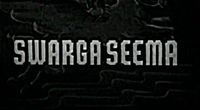This article may be too long to read and navigate comfortably. (March 2015) |
An identity document (also called a piece of identification or ID, or colloquially as papers) is any document which may be used to prove a person's identity. If issued in a small, standard credit card size form, it is usually called an identity card (IC, ID card, Citizen Card), or Passport Card. Some countries issue formal identity documents, as national identification cards which may be compulsory or non-compulsory, while others may require identity verification using regional identification or informal documents. When the identity document incorporates a person's photograph, it may be called photo ID.
In the absence of a formal identity document, a driver's license may be accepted in many countries for identity verification. Some countries do not accept driver's licenses for identification, often because in those countries they do not expire as documents and can be old or easily forged. Most countries accept passports as a form of identification. Some countries require all people to have an identity document available at any time. Many countries require all foreigners to have a passport or occasionally a national identity card from their country available at any time if they do not have a residence permit in the country.
The identity document is used to connect a person to information about the person, often in a database. The photo and the possession of it is used to connect the person with the document. The connection between the identity document and information database is based on personal information present on the document, such as the bearer's full name, age, birth date, address, an identification number, card number, gender, citizenship and more. A unique national identification number is the most secure way, but some countries lack such numbers or don't write them on identity documents.
Contents
History
A version of the passport considered to be the earliest identity document inscribed into law was introduced by King Henry V of England with the Safe Conducts Act 1414.
For the next 500 years and before World War I, most people did not have or need an identity document.
Photographic identification appeared in 1876 but it did not become widely used until the early 20th century when photographs became part of passports and other ID documents such as driver's licenses, all of which came to be referred to as "photo IDs". Both Australia and Great Britain, for example, introduced the requirement for a photographic passport in 1915 after the so-called Lody spy scandal.
The shape and size of identity cards were standardized in 1985 by ISO/IEC 7810. Some modern identity documents are smart cards including a difficult-to-forge embedded integrated circuit, that were standardized in 1988 by ISO/IEC 7816. New technologies allow identity cards to contain biometric information, such as photographs, face, hand or iris measurements, or fingerprints. Electronic identity cards (or e-IDs) are already available in countries including Belgium, Croatia, Chile, Estonia, Finland, Guatemala, Hong Kong, Malaysia, Morocco, Portugal and Spain.
Adoption
Law enforcement officials claim that identity cards make surveillance and the search for criminals easier and consequently support the universal adoption of identity cards. In countries that don't have a national identity card, there is, however, concern about the projected large costs and potential abuse of high-tech smartcards.
In many countries - and especially English-speaking countries such as Australia, Canada, Ireland, New Zealand, the United Kingdom and the United States - there are no government-issued compulsory identity cards to all citizens. Ireland has the Public services card although it is a not considered as a national identity card by the Department of Employment Affairs and Social Protection (DEASP) .
There is debate in these countries about whether such cards and their centralised database would constitute an infringement of privacy and civil liberties. Most criticism is directed towards the enhanced possibilities of extensive abuse of centralised and comprehensive databases storing sensitive data. A 2006 survey of UK Open University students concluded that the planned compulsory identity card under the Identity Cards Act 2006 coupled with a central government database generated the most negative attitudinal response among several alternative configurations. None of the countries listed above mandate possession of identity documents, but they have de facto equivalents since these countries still require proof of identity in many situations. For example, all vehicle drivers must have a driving licence, and young people may need to use specially issued "proof of age cards" when purchasing alcohol. In addition, and uniquely amongst native English speaking ountries without ID cards, the USA require all its male residents between the ages of 18 and 25, including foreigners, to register for military conscription.
Arguments for
Arguments for identity documents as such:
- In order to avoid mismatching people, and to fight fraud, there should be a way, as securely as possible, to prove a person's identity.
- Every human being already carries their own personal identification in the form of DNA, which is extremely hard to falsify or to discard (in terms of modification). Even for non-state commercial and private interactions, this may shortly become the preferred identifier, rendering a state-issued identity card a lesser evil than the potentially extensive privacy risks associated with everyday use of a person's genetic profile for identification purposes.
Arguments for national identity documents:
- If using only private alternatives, such as id cards issued by banks, the inherent lack of consistency regarding issuance policies can lead to downstream problems. For example, in Sweden private companies such as banks (citing security reasons) refused to issue ID cards to individuals without a Swedish card. This forced the government to start issuing national cards. It is also harder to control information usage by private companies, such as when credit card issuers or social media companies map purchase behaviour in order to assist ad targeting.
Arguments against
Arguments against identity documents as such:
- The development and administration costs of an identity card system can be very high. Figures from GBP30 (USD45) to GBP90 or even higher were suggested for the abandoned UK ID card. In countries like Chile the identity card is personally paid for by each person up to GBP6; in other countries, such as Venezuela, the ID card is free. This, however, does not disclose the true cost of issuing ID cards as some additional portion may be borne by taxpayers in general (See also Parable of the broken window.)
Arguments against national identity documents:
- Rather than relying on government-issued ID cards, US federal policy has the alternative to encourage the variety of identification systems that already exist, such as driver's or firearms licences or private cards.
Arguments against overuse or abuse of identity documents:
- Cards reliant on a centralized database can be used to track anyone's physical movements and private life, thus infringing on personal freedom and privacy. The proposed British ID card (see next section) proposes a series of linked databases managed by private sector firms. The management of disparate linked systems across a range of institutions and any number of personnel is alleged to be a security disaster in the making.
- If religion or ethnicity is registered on mandatory ID documents, this data can enable racial profiling.
National policies
According to Privacy International, as of 1996, possession of identity cards was compulsory in about 100 countries, though what constitutes "compulsory" varies. In some countries (see below), it is compulsory to have an identity card when a person reaches a prescribed age. The penalty for non-possession is usually a fine, but in some cases it may result in detention until identity is established. For people suspected with crimes such as shoplifting or no bus ticket, non-possession might result in such detention, also in countries not formally requiring identity cards. In practice, random checks are rare, except in certain times.
A number of countries do not have national identity cards. These include Andorra, Australia, Canada, Denmark, India (see below), Japan, New Zealand, Norway, the United Kingdom. Other identity documents such as passports or driver's licenses are then used as identity documents when needed.
A number of countries have voluntary identity card schemes. These include Austria, Finland, France (see France section), Hungary (however, all citizens of Hungary must have at least one of: valid passport, photocard driving licence, or the National ID card), Iceland, Ireland, Sweden, Switzerland and the United States. The United Kingdom's scheme was scrapped in January 2011 and the database was destroyed.
In the United States, the Federal government issues optional identity cards known as "Passport Cards" (which include important information such as the nationality). In the other hand, states issue optional identity cards for people who do not hold a driver's license as an alternate means of identification. These cards are issued by the same organization responsible for driver's licenses, usually called the Department of Motor Vehicles. Note, this is not an obligatory identification card for citizens.
For the Sahrawi people of Western Sahara, pre-1975 Spanish identity cards are the main proof that they were Saharawi citizens as opposed to recent Moroccan colonists. They would thus be allowed to vote in an eventual self-determination referendum.
Companies and government departments may issue ID cards for security purposes or proof of a qualification. For example, all taxicab drivers in the UK carry ID cards. Managers, supervisors, and operatives in construction in the UK have a photographic ID card, the CSCS (Construction Skills Certification Scheme) card, indicating training and skills including safety training. Those working on UK railway lands near working lines must carry a photographic ID card to indicate training in track safety (PTS and other cards) possession of which is dependent on periodic and random alcohol and drug screening. In Queensland and Western Australia, anyone working with children has to take a background check and get issued a Blue Card or Working with Children Card, respectively.
Africa
Republic of Liberia
Liberia has begun the issuance process of its national biometric identification card, which citizens and foreign residents will use to open bank accounts, and participate in other Govt. Services on daily basis.
More than 4.5 million people are expected to register and obtain ID cards of citizenship or residence in Liberia. The project has already started where NIR (National Identification Registry) is issuing Citizen National ID Cards. The centralized National Biometric Identification System (NBIS) will be integrated with other Govt Ministries. Resident ID Cards and ECOWAS ID Card will also be issued. Please visit this site for more information http://nir.gov.lr/
Egypt
It is compulsory for all Egyptian citizens age 16 or older to possess ID card (Arabic: ????? ????? ?????? Bi??qat ta?q?q shakh?iyya, literally, "Personal Verification Card"). In daily colloquial speech, it is generally simply called "el-bi??qa ("the card"). It is used for:
- Opening or closing a bank account
- Registering at a school or university
- registering the number of a mobile or landline telephone
- Interacting with most government agencies, including:
- Applying for or renewing a driver's license
- Applying for a passport
- Applying for any social services or grants
- Registering to vote, and voting in elections
- Registering as a taxpayer
Egyptian ID cards consist of 14 digits, the national identity number, and expire after 7 years from the date of issue. Some feel that Egyptian ID cards are problematic, due to the general poor quality of card holders' photographs and the compulsory requirements for ID card holders to identify their religion and for married women to include their husband's name on their cards.
Tunisia
Every citizen of Tunisia is expected to apply for an ID card by the age of 18; however, with the approval of a parent, a Tunisian citizen may apply for, and receive, an ID card prior to their eighteenth birthday upon parental request.
In 2016, The government has introduced a new bill to the parliament to issue new biometric ID documents. The bill has created controversy amid civil society organizations.
The Gambia
All Gambian citizens over 18 years of age are required to hold a Gambian National Identity Card. In July 2009, a new biometric Identity card was introduced. The biometric National Identity card is one of the acceptable documents required to apply for a Gambian Driving Licence.
Mauritius
Mauritius requires all citizens who have reached the age of 18 to apply for a National Identity Card. The National Identity Card is one of the few accepted forms of identification, along with passports. A National Identity Card is needed to apply for a passport for all adults, and all minors must take with them the National Identity Card of a parent when applying for a passport.
Nigeria
Nigeria first introduced a National Identity Card in 2005, but its adoption back then was limited and not widespread. The country is now in the process of introducing a new biometric ID Card complete with a SmartCard and other security features. The National Identity Management Commission (NIMC) is the Federal Government Agency responsible for the issuance of these new cards, as well as the management of the new National Identity Database. The Federal Government of Nigeria announced in April 2013 that after the next General Election in 2015, all subsequent elections will require that voters will only be eligible to stand for office or vote provided the Citizen possesses a NIMC-issued Identity Card. The Central Bank of Nigeria is also looking into instructing banks to request for a National Identity Number (NIN) for any citizen maintaining an account with any of the banks operating in Nigeria. The proposed kick off date is yet to be determined.
South Africa

Request Movie Now
Watch movie Identity Card online on Amazon
Watch movie Identity Card online
Watch The Movie On PrimeSwades Full HD Movie Download

Muthu Full HD Movie Download

Jeene Ki Arzoo Full HD Movie Download

Anand Math Full HD Movie Download

First Love Letter Full HD Movie Download

Manoranjan (1974) Full HD Movie Download
.jpg)
Tum Se Achcha Kaun Hai (1969) Full HD Movie Download
.jpg)
Alibaba Aur 40 Chor Full HD Movie Download

Odd Couple Full HD Movie Download

Krishnan Love Story Full HD Movie Download

Kaccha Yauvan Full HD Movie Download

Yeh Raaste Hain Pyar Ke (1963) Full HD Movie Download
.jpg)
Charminar Boys Full HD Movie Download

Swarga Seema Full HD Movie Download

Kalshekhar Aahet Ka Full HD Movie Download

Adiverukal Full HD Movie Download

Azhagu Nilayam Full HD Movie Download

Nagaraju Full HD Movie Download

Chattaniki Kallu Levu Full HD Movie Download

Alumogalu Full HD Movie Download

Peda Rasi Pedamma Katha Full HD Movie Download

Download latest Movie from bollywood
- 1> baaghi 3
- 2> THE SKY IS PINK MOVIE FULL STORY AND REVIEW
- 3> Luka Chuppi
- 4> TO ALL THE BOYS I’VE LOVED BEFORE
- 5> Kabir Singh
- 6> Street Dancer 3D
- 7> Simmba
- 8> Gone Girl
- 9> The Girl Who Lived
- 10> Ludo
- 11> DILWALE DULHANIA LE JAYENGE
- 12> GUILTY
- 13> The Godfather
- 14> Adventures of Rusty
- 15> Sooryavanshi
- 16> Satyameva Jayate 2
- 17> Thappad
- 18> Bhool Bhulaiyaa 2
- 19> KGFChapter 2
- 20> Mardaani 2
- 21> Pinjar
- 22> Shivaji maharaj
- 23> Ek Villian 2
- 24> Hungama 2
- 25> Divergent
- 26> Mumbai Saga
- 27> The Internship
- 28> HIT (telugu)
- 29> Panga
- 30> The perfect date
- 31> 16 December
- 32> Gopala Gopala (Telugu)
- 33> Brahmastra
- 34> Gangubai Kathiawadi
- 35> Manmadhudu
- 36> Nenu local
- 37> Mahanati
- 38> Shatamanam bavathi
- 39> Lagaan
- 40> After
- 41> MOM
- 42> Shamshera
- 43> Raguvaran BTech
- 44> Khakee
- 45> The villain
- 46> OM
- 47> Mr. perfect
- 48> Bueatifull mind
- 49> Hichki
- 50> Gabbar Singh
- 51> Jogi
- 52> Before Sunrise
- 53> Before Sunset
- 54> Before Midnight
- 55> The Big Bull
- 56> Top Gun: Maverick
- 57> The Purge
- 58> The Sky is Pink
- 59> Laxmmi Bomb
- 60> Sadak 2
- 61> Sufna
- 62> Prithviraj
- 63> PK
- 64> Coolie No 1(2020)
- 65> Black Widow
- 66> Dear Zindagi
- 67> Dil Bechara
- 68> PHIR HERA PHERI
- 69> WAR
- 70> Dostana
- 71> RRR: Roudram Ranam Rudhiram
- 72> Maidan
- 73> Dabbang 3
- 74> Chhalaang
- 75> life as we know it
- 76> SherShaah
- 77> Sandeep Aur Pinky Faraar
- 78> Event Horizon
- 79> 83
- 80> Radhe: Your Most Wanted Bhai
- 81> Gunjan Saxena: The Kargil Girl
- 82> Mr India
- 83> Vivah
- 84> Anokha Bandhan
- 85> Ghost
- 86> Bhoot: Part One - The Haunted Ship
- 87> Haseen Dilruba
- 88> Laal Singh Chaddha
- 89> Qismat
- 90> Rajput
- 91> Drive
- 92> Dil Chahta Hai
- 93> Dil Ki Baazi
- 94> Dil Ka Rishta
- 95> Teesri Manzil
- 96> Dil
- 97> Love Aaj Kal
- 98> Khaali Peeli
- 99> Bunty Aur Babli 2
- 100> Atrangi Re
- 101> Gulabo Sitabo
- 102> Jodi
- 103> Suraj Pe Mangal Bhari
- 104> Deewana
- 105> Attack
- 106> Sardar Udham Singh
- 107> Toofan
- 108> THE LOVEBIRDS
- 109> Jersey
- 110> Ginny Weds Sunny
- 111> Thalaivi
- 112> Shiddat
- 113> Angels vs Zombies
- 114> Koi Mil Gya
- 115> Thank God
- 116> Bhuj: The Pride of India
- 117> Hum Aapke Hain Kaun
- 118> The Platform
- 119> Bird Box
- 120> Roohi Afzana
- 121> Torbaaz
- 122> Nikamma
- 123> World War Z
- 124> Extraction
- 125> Train to Busan
- 126> Life of Pi
- 127> SHAADI MEIN JROOR AANA
- 128> Himmat Aur Mehnat
- 129> To All The Boys: P.S. I Still Love You
- 130> Mimi
- 131> Good Newwz
- 132> Shubh Mangal Zyada Saavdhan
- 133> Raabta
- 134> Harry Potter and the Philosopher's Stone
- 135> Harry Potter and the Chamber of Secrets
- 136> Chhapaak
- 137> War of the Worlds
- 138> Harry Potter and the Prisoner of Azkaban
- 139> Harry Potter and the Goblet of Fire
- 140> MURDER MYSTERY
- 141> Shakuntala Devi
- 142> Bachchan Pandey
- 143> Jayeshbhai Jordar
- 144> Sheer Qorma
- 145> Saina
- 146> 'O' Pushpa I hate tears
- 147> Kedarnath
- 148> MS Dhoni The Untold Story
- 149> Chhichhore
- 150> Badhaai Ho
- 151> Unstoppable
- 152> Oz the Great And Powerful
- 153> The Girl on the Train
- 154> Haathi Mere Saathi 2020
- 155> The Conjuring: The Devil Made Me Do It
- 156> Gandhi Se Pehle Gandhi
- 157> The Song of Scorpions
- 158> Srimanthudu
- 159> Hello Guru Prema Kosame
- 160> Beauty and The Beast
- 161> Black Panther
- 162> Charlie and the Chocolate Factory
- 163> Bole Chudiyan
- 164> Fidaa
- 165> Duvvada Jagannadham
- 166> Bruce Lee: The Fighter
- 167> Hyper
- 168> Yaara
- 169> Red (2020)
- 170> Shivam
- 171> That Is Mahalakshmi
- 172> Nishabdham
- 173> Aashram 2020 web series
- 174> Laxmii
- 175> Mismatched
- 176> STUDENT OF THE YEAR 2
- 177> NAIL POLISH
- 178> Ramprasad Ki Tehrvi
- 179> KAAGAZ
- 180> 12 o Clock
- 181> The Power
- 182> bolo hau
- 183> Tribhanga
- 184> JAMUN
- 185> Madam Chief Minister
- 186> Maasaab
- 187> Aadhaar
- 188> Tanhaji
- 189> Bhaagi 3
- 190> Bhootnath
- 191> MALANG
- 192> Jai Mummy Di
- 193> Haathi Mere Saathi 2021
- 194> Shakeela
- 195> Unpaused
- 196> Annayya
- 197> Vamsoddharakudu
- 198> Mrugaraju
- 199> Narasimha Naidu
- 200> Sankranti
- 201> Manasu Maata Vinadhu
- 202> Anjaane
- 203> Apaharan
- 204> Bachke Rehna Re Baba
- 205> Bewafaa
- 206> Roohi
- 207> Radhe
- 208> Zindagi Khoobsoorat Hai
- 209> Yeh Mohabbat Hai
- 210> Yeh Kya Ho Raha Hai?
- 211> The Tomorrow War
- 212> DehradunDiary
- 213> Meri Shaadi Karaoo
- 214> Matruu Ki Bijlee Ka Mandola
- 215> No One Killed Jesica
- 216> Aag Ka Goola
- 217> Eight Million Dollars
- 218> Three Hundred
- 219> Cats and Dog
- 220> Decoy
- 221> Gold Rush
- 222> You Have Got Mail
- 223> Final Destination three
- 224> Tofan
- 225> Jungle
Request for Download movie Identity Card
- Bollywood movies
- Latest Bollywood movies
- Download all bengali movies
- Download all bhojpuri movies
- Download all english movies
- Download all gujarati movies
- Download all hindi movies
- Download all kannada movies
- Download all malayalam movies
- Download all marathi movies
- Download all oriya movies
- Download all punjabi movies
- Download all tamil movies
- Download all telugu movies
- Bollywood action movies
- Bollywood adventure movies
- Bollywood animation movies
- Bollywood classical movies
- Bollywood comedy movies
- Bollywood crime movies
- Bollywood devotional movies
- Bollywood documentary movies
- Bollywood drama movies
- Bollywood family movies
- Bollywood fantasy movies
- Bollywood historical movies
- Bollywood history movies
- Bollywood horror movies
- Bollywood musical movies
- Bollywood mystery movies
- Bollywood mythological movies
- Bollywood patriotic movies
- Bollywood romance movies
- Bollywood romantic movies
- Bollywood sci-fi movies
- Bollywood social movies
- Bollywood spiritual movies
- Bollywood sports movies
- Bollywood suspense movies
- Bollywood thriller movies
- Bollywood war movies
- Hot actress list
- Hot gujarati actress list
- Hot tamil actress list
- Hot bhojpuri actress list
- Hot assam actress list
- Hot bihari actress list
- Hot jammu and kashmir actress list
- Hot gujarati actress list
- Hot haryana actress list
- Hot konkani actress list
- Hot marathi actress list
- Hot odia actress list
- Hot punjabi actress list
- Hot rajasthani actress list
- Hot kannada actress list
- Hot malayalam actress list
- Hot telugu actress list
- Hot tulu actress list
- Hot Actress list from Indian city
- Hot actress list from ahmedabad
- Hot actress list from alappuzha
- Hot actress list from bangalore
- Hot actress list from bangalore
- Hot actress list from bhopal
- Hot actress list from chandigarh
- Hot actress list from chennai
- Hot actress list from guwahati
- Hot actress list from hyderabad, india
- Hot actress list from indore
- Hot actress list from jaipur
- Hot actress list from kannur
- Hot actress list from kochi
- Hot actress list from kolkata
- Hot actress list from kollam
- Hot actress list from kottayam
- Hot actress list from kozhikode
- Hot actress list from lucknow
- Hot actress list from madurai
- Hot actress list from mangalore
- Hot actress list from mumbai
- Hot actress list from mysore
- Hot actress list from new delhi
- Hot actress list from patna
- Hot actress list from pune
- Hot actress list from thiruvananthapuram
- Hot actress list from thrissur
- Hot actress list from tiruchirappalli
- Hot actress list from vijayawada
- Hot actress list from visakhapatnam
- All Bollywood Movies
- Bollywood Celeb
- >Art Director
- >Audiography
- >Background Music
- >Banner
- >Choreographer
- >Cinematographer
- >Costume Designer
- >Dialogue Writer
- >Director
- >Distributor
- >Editor
- >Executive Producer
- >Hair Stylist
- >Lyricist
- >Music Director
- >Photographer
- >Playback Singers
- >Presenter
- >Producer
- >Production Company
- >Production Designer
- >Screenplay
- >Singer
- >Sound
- >Actor
- >Story Writer
- >Studio
- >Video Director
- >Miscellaneous
- >Publicity (pro)
- >Web Creator
- >Production Labs
- >Publicity Design
- >Publicity Stills
- >Writer
- >Miscellaneous Artists
- >Visual Effects
- >Reporter
- >Music Company
- >Shooting Studios
- >Picturised On
- >Line Producer
- >Co Producer
- >Asst Director
- >Casting Director
- >Cinematography
- >Choreography
- >Dialouge
- >Editing
- >Lyrics
- >Music
- >Story
- >Playback Singer Female
- >Playback Singer Male
- >Actor In A Comic Role (male/female)
- >Child Artiste
- >Ensemble Cast
- >Actor Popular Choice (male)
- >Actor Popular Choice (female)
- >Sa Re Ga Ma Pa Song Of The Year
- >Actor In Supporting Role
- >Actress In Supporting Role
- >Actor In Leading Role
- >Art Direction
- >Actress In Leading Role
- >Sound Recording
- >Costume Design
- >Special Effects
- >Action
- >Actor In A Negative Role
- >Lifetime Achievement Award
- >Cinematic Exellence (director)
- >Cinematic Exellence (male)
- >Cinematic Exellence (female)
- >International Male Icon
- >International Female Icon
- >Actor In A Supporting Role (male)
- >Actor In A Supporting Role (female)
- >Actor In A Comic Role
- >Playback Singer (male)
- >Playback Singer (female)
- >Most Promising Debut (female)
- >Most Promising Debut (male)
- >Most Promising Director
- >Sound Design
- >Lifetime Jodi
- >Marketed Film
- >Jury Award For Best Actor
- >Jury Award For Best Actress
- >Jury Award For Best Film
- >Jury Award For Best Director
- >Playback Singer(male)
- >Lifetime Acheivement Award (male)
- >Excellence Award
- >Jodi Award
- >Performer Of The Year
- >Presented By